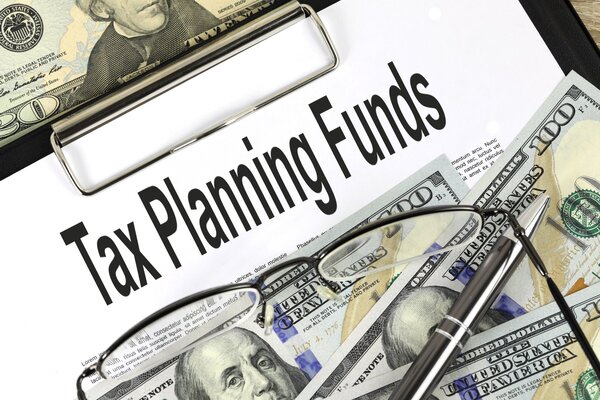When Is It Time to Retire from Your Job? A Friendly Guide to Knowing The Right Moment
Wondering when is it time to retire from your job? If that question has been casually popping into your head during staff meetings or while staring at yet another email thread, you’re not alone. Deciding when to finally step away from work is part math, part emotion, and part “okay, what do I actually want from the rest of my life?” Retirement isn’t just about having enough money—it’s about being ready in your heart, mind, and everyday routine.
In this guide, I’ll walk you through the signs, questions, and practical steps that can help you figure out whether your retirement clock is really ticking. Think of this as the honest, friendly conversation you’d have with someone over coffee who’s been there—or at least thought way too much about it.
Why Knowing When to Retire Matters More Than You Think
Here’s the thing: retirement age is not just a number you hit and then automatically ride off into the sunset. It’s a milestone that shapes your lifestyle, finances, and well-being for possibly the next 20–30 years. No pressure, right?
Most of us grow up thinking of retirement as the day work stops. But in reality, it’s the beginning of a whole new chapter—one where you get to decide how your days look. Gardening. Traveling. Volunteering. Spoiling grandkids. Learning a new language. Or yes, guilt-free afternoons with your favorite shows.
The hard part? There is no one-size-fits-all answer to when is it time to retire from your job.
I’ve seen people retire at 60 and absolutely flourish, and others keep working well into their 70s because they genuinely love what they do. According to the Stanford Center on Longevity, retirement satisfaction depends on a mix of factors: health, purpose, social connections, and financial readiness. Two people making the same income can have completely different outcomes.
So instead of asking, “What age should I retire?” it’s better to ask:
- What kind of life do I want in the next chapter?
- Can I afford that life—financially and emotionally?
- Am I staying because I want to, or because I’m afraid to leave?
Those questions are a lot more helpful than a magic number.
Introduction to Planning Your Retirement Journey
Embarking on your retirement journey is one of the biggest transitions you’ll ever make. I don’t say that to scare you—it’s just the truth. You’re not just changing jobs; you’re changing how you spend your time, your energy, and in some ways, who you are day to day.
I’ve always believed that a good retirement doesn’t start with a date; it starts with a vision. The date comes later.
Sure, you might have an age in mind. Maybe 62 sounds nice. Maybe 67 lines up with full Social Security benefits. But that number only really works if it matches up with:
- Your retirement savings and income streams
- Your health insurance and health care plans
- Your energy level and stress level
- And honestly, your desire to keep doing what you’re doing
A lot of people circle a retirement date like it’s a vacation. Then they realize…it’s the rest of their life. That’s a lot of open calendar.
This is where it helps to step back and ask:
- Is my current job still bringing me satisfaction, or am I just on autopilot?
- If money weren’t an issue, would I still be working here?
- What am I actually looking forward to after I retire?
Your mental health and well-being matter just as much as your bank balance. I’ve seen people hang on for “one more year” five years in a row, not because they love their work, but because they’re scared of the unknown. And I’ve also seen people retire later than they planned because they realized they actually liked what they were doing and weren’t ready to give it up.
The goal isn’t to hit some arbitrary retirement age. The goal is to line up three things:
- A realistic financial plan
- A work situation that still feels okay (or at least tolerable)
- A clear enough picture of what life after work will look like
When those three start to click, that’s when the idea of retirement usually starts to feel less scary—and more possible.
Financial Foundations: Do You Have Enough Money to Retire?
Let’s start with the topic most people worry about first: money.
When you’re asking when is it time to retire from your job, your finances are going to have a big say in the answer. Retirement savings, pensions, Social Security, health care costs, and investments all combine to answer one core question:
Can I realistically afford to stop working and still live the life I want?

Retirement Savings and Budgeting: Are You Financially Secure?
This is the part where you pull apart the numbers. Not fun for everyone, I know. But incredibly freeing once you do it.
Start by listing out what you’ve got:
- 401(k), IRA, or similar retirement accounts
- Any pension benefits
- Other investments (brokerage accounts, rental property, etc.)
- Cash savings or CDs
Then list what you expect to bring in:
- Social Security benefits
- Pension payments (if you have them)
- Income from part-time work or side gigs (if you plan on working a bit)
A lot of financial planners use the 4% rule as a loose guideline: you can withdraw around 4% of your retirement portfolio per year and have a reasonable chance of not running out of money over a 30-year retirement.
So if you have $800,000 saved, 4% is about $32,000 a year. Add that to Social Security and any pension income, and ask: Does that cover my expected lifestyle?
Which brings us to the other side of the equation: your expenses.
Create a rough retirement budget you need to live comfortably that includes:
- Housing (mortgage or rent, taxes, insurance, maintenance)
- Utilities and groceries
- Health insurance and out-of-pocket medical expenses
- Transportation
- Travel and leisure
- Hobbies, gifts, and “fun money”
The Bureau of Labor Statistics has consistently shown that households led by someone 65+ still have substantial annual expenses, and health care tends to creep up as you age. The goal isn’t to scare you—it’s to avoid surprise.
And then there’s inflation.
If you haven’t thought about inflation since a high school economics class, this is your reminder that prices do go up over time, sometimes faster than we’d like. The Federal Reserve aims for about 2% inflation, but recent years have been bumpy. What costs $3,000 a month now may cost significantly more a decade into retirement.
The simple takeaway for your retirement years: your money has to last, and it has to stretch.
If, after looking at your numbers, you realize you’re short, that doesn’t mean you can never retire. It might just mean:
- Working a few more years
- Saving more aggressively
- Adjusting your lifestyle expectations
- Planning on a bit of part-time income
Social Security Benefits: When Should You Claim?
Social Security is one of the biggest financial levers you can pull when deciding when to retire from your job.
You can start claiming benefits at 62, but your monthly checks will be smaller. Your full retirement age (FRA) is usually between 66 and 67 depending on your birth year. Wait until FRA, and you get 100% of your benefit. Wait longer—up to age 70—and your monthly check grows thanks to delayed retirement credits.
The Social Security Administration notes that delaying can increase your benefit by up to about 32% compared to claiming at full retirement age.
So why would anyone take it early?
Because the “right” answer depends on:
- Your health and family longevity
- Your immediate financial needs
- Whether you’re still working
- Your spouse’s situation, if you’re married
If your job is wearing you down and you really can’t keep going, claiming earlier might be a trade-off you’re willing to make. On the other hand, if you have other income and can wait, those higher monthly checks later in life can be a huge relief.

Debt and Financial Freedom
Carrying debt into retirement isn’t the end of the world, but it does make the road bumpier.
High-interest debt (like credit cards) is especially rough when you’re on a fixed income. The Employee Benefit Research Institute has highlighted rising debt levels among older households, and it clearly adds stress.
Ideally, before you retire you would:
- Pay off high-interest credit card debt
- Pay down or pay off your mortgage if realistic
- Avoid new car loans or big financed purchases
You don’t have to be completely debt-free to retire, but the lighter your financial load, the more flexible and relaxed you’ll feel.
Full Retirement Age Considerations: What You Need to Know
Let’s talk about full retirement age (FRA) for a minute, because it quietly has a big impact on when is it time to retire from your job.
Your FRA is the age at which you’re entitled to your full Social Security benefit.
- Born 1960 or later? Your FRA is 67.
- Born a bit earlier? It generally ranges from 66 to 66 and 10 months.
Here’s why this matters:
- Claim before FRA? You get reduced monthly benefits for life.
- Claim at FRA? You get your full calculated benefit.
- Delay after FRA (up to 70)? Your benefit increases each year you wait.
I’ve seen people decide based solely on emotion—“I paid in all these years; I’m taking it as soon as I can.” And while that feeling is understandable, it can lock you into a smaller income for the rest of your life.
A better approach:
- Look at your health: Do you have reasons to think you won’t live into your late 70s or 80s? Claiming earlier may make sense.
- Look at your savings: Can you afford a few years without Social Security to get a higher check later?
- Look at your partner’s situation: Spousal and survivor benefits can shift the equation.
This is one of those decisions where an hour with a financial planner who understands Social Security can be worth a lot. They can run break-even analyses and help you see the long-term impact of claiming at 62 vs 67 vs 70.
Health and Well-being: The Unsung Heroes of Retirement Readiness
You can have the most beautiful spreadsheet in the world, but if your health falls apart the year you retire, that spreadsheet won’t make walks on the beach any easier.
Your physical and mental health are huge pieces of the puzzle when you’re figuring out when is it time to retire from your job.
Physical Health: What Is Your Body Telling You?
If your job is physically or mentally grinding you down, it’s worth listening to that.
Signs to pay attention to:
- Chronic fatigue or burnout
- Stress-related health issues (headaches, high blood pressure, sleep problems)
- Your doctor gently suggesting you “slow down”
Research in journals like Occupational Medicine and the Journal of Occupational Health Psychology has linked long-term job stress to higher risks of heart disease, stroke, and other serious conditions. It’s not just feeling tired—it can literally age you faster.
I’ve seen people push themselves for “just one more year” more times than I can count. Sometimes that year turns into three or five, and their health slowly takes the hit.
On the flip side, if you’re in solid health and your job isn’t punishing, there’s no rule that says you have to retire because you turned a certain age. Some people genuinely feel better staying active and engaged in their work.
Mental Health and Emotional Signs: Are You Emotionally Prepared?
We don’t talk about this enough: your emotional state is legitimate retirement data.
Ask yourself:
- Do I regularly feel dread before work?
- Has my job stopped feeling meaningful or useful to me?
- Do I feel like life is happening somewhere else while I sit in meetings?
If work is constantly draining your energy, creativity, or joy, that’s not something to shrug off.
Burnout is incredibly common. Gallup has reported that a majority of workers feel burnout at least sometimes, and it doesn’t magically fade with age. For a lot of older adults, burnout is the reason the idea of retirement starts feeling less like a risk and more like a lifeline.
At the same time, pay attention to the flip side:
- Do you feel relief or even calm when you picture being retired?
- Do you have ideas and plans for what you’d love to do with that time?
It’s normal to feel a mix of excitement and fear. But if your gut is quietly whispering, “You’re done here,” it might be time to listen.
Generally, answer this question honestly, “are you emotionally ready to retire?”
Social and Lifestyle Factors: What Will You Do with All That Free Time?
Work gives us more than just a paycheck. It provides:
- Structure
- Social interaction
- A sense of purpose
- A short, easy answer to “So, what do you do?”
When you’re asking when is it time to retire from your job, you’re also asking: What will my days look like without that built-in structure?
Building New Connections and Finding Purpose
If most of your social life is tied to colleagues and office events, it’s smart to start building a life outside of work before you retire.
Some ideas:
- Join a local walking group, book club, or hobby meetup to make new friends
- Volunteer for a cause that matters to you
- Take classes—art, cooking, photography, languages
- Get more involved in community or faith-based groups
Studies from the University of Michigan’s Health and Retirement Study show that retirees who stay socially connected and engaged report higher life satisfaction and better health. Loneliness, on the other hand, is linked with worse health outcomes.
Retirement can be a fantastic opportunity to:
- Dust off old dreams (painting, music, writing)
- Travel (whether that means Europe or just the next town over)
- Spend more time with kids, grandkids, or close friends
You don’t need a minute-by-minute schedule. But having a rough map of what will give your days meaning goes a long way.
Part-Time Work and Second Acts
Here’s a secret no one told our grandparents: retirement doesn’t have to mean “no more work ever.”
Plenty of people:
- Consult part-time in their old field
- Start small businesses
- Work a flexible, low-stress job
- Volunteer in roles that feel like work…just without the paycheck
AARP has found that a sizable share of older adults keep working in some capacity—often by choice, not necessity.
Sometimes the job you take after retirement is the one you always wanted, but couldn’t justify earlier. I’ve seen former executives become park guides, teachers move into mentoring roles, and IT pros turn into full-time tinkerers and hobbyists.
These “second acts” can:
- Bring in extra income
- Keep your brain engaged
- Provide social interaction
- Make the shift away from full-time work feel less abrupt
Current Career Evaluation: Is It Time to Move On?
Evaluating your current career is a little like finally opening that overstuffed closet: you might not love what you find, but you can’t clean it up until you look.
Start with a few simple questions:
- How do I feel most Sunday nights?
- Do I still care about the work I’m doing?
- Does this job feel aligned with who I am now, not just who I was when I started?
If your honest answers lean toward “tired,” “done,” or “counting the days,” that’s useful information.
Then bring money back into the picture—not as the only factor, but as a reality check.
Ask yourself:
- Do I understand my retirement savings and income clearly enough to pick a date without guessing?
- What would my life actually look like—this year, five years from now—if I left?
This is also the fun part: designing what comes next.
Imagine:
- A typical Tuesday in retirement. What are you doing?
- One perfect retired week. What does it include?
If you can picture that life and feel genuinely excited about it—and your finances and health are reasonably lined up—that’s usually when people start saying, “Okay. I think I’m getting close.”
Practical Tips for Deciding When to Retire from Your Job
We’ve covered the big ideas. Now let’s ground them in some simple, practical steps you can actually take.
These won’t tell you the exact date, but they’ll give you clarity on how close you are.
1. Assess Your Financial Health
Gather all your account statements, list your income sources, and build a basic retirement budget. Use an online retirement calculator from a reputable source (Fidelity, Vanguard, or similar), or sit down with a financial planner.
2. Evaluate Your Health
Schedule a checkup if you haven’t had one in a while. Talk honestly with your doctor about your stress level, energy, and long-term outlook.
3. Reflect on Job Satisfaction
For a couple of weeks, jot down how you feel each workday—energy, mood, stress. Patterns will show up more clearly on paper than in your head.
4. Plan Your Social Life
Start building or strengthening relationships outside of work. Join at least one non-work activity now, not after your retirement party.
5. Check Your Emotional Readiness
Notice how you feel when you imagine telling your boss, “I’m retiring.” Terrified? Thrilled? Relieved? A mix is normal, but the dominant feeling matters.
6. Understand Your Benefits
Learn your Social Security full retirement age, run estimates for different claiming ages, and understand any pension or employer benefits you have. Don’t forget health coverage and Medicare timing.
7. Create or Refine Your Retirement Budget
Add in health care, travel, hobbies, and a cushion for unexpected costs. Your budget doesn’t have to be perfect, just honest.
8. Test the Waters
If possible, try part-time work, a phased retirement, or a long break. A “trial run” can reveal whether retirement feels like freedom or like too much empty space.
Staying Engaged: How to Thrive After Retirement
Let’s say you decide it really is time to retire from your job. What then?
Retirement isn’t about doing nothing. (That’s called a vacation. And even vacations get boring if they last forever.) It’s about having the space to do the things you care about, at a pace that works for you.

Research from the National Institute on Aging highlights three big pillars for healthy aging:
- Stay physically active
- Stay mentally engaged
- Stay socially connected
In real life, that might look like:
- Morning walks with a friend or partner
- A weekly class—painting, woodworking, dancing, you name it
- Volunteering one or two days a week
- Regular time with family or a close circle of friends
I’ve watched retirees who lean into these things absolutely thrive. They’re not trying to recreate their working life—they’re building a different kind of full life.
And here’s the fun part: you get to experiment. If you try something and hate it? Great, cross it off the list and try something else. No performance review required.
When Is It Time to Retire? The Bottom Line
So, when is it time to retire from your job?
It’s not a single birthday or a perfect number in your savings account. It’s when three things start to line up:
- Your money can reasonably support the life you want
- Your health and stress levels are telling you it’s either safe to stay or smart to step away
- Your heart and mind are more excited about what’s next than attached to what is
If reading this has you thinking, “That’s me. I’m close,” then it might be time to start planning your actual exit—on your terms.
If you’re not there yet, that’s okay. Use what you’ve learned here as a checklist:
- Strengthen your finances
- Take care of your health
- Build a life outside of work
- Get clearer on what you want your days to look like
The decision about when is it time to retire from your job is one of the biggest calls you’ll ever make. But it doesn’t have to be a guess.
Take your time, gather your information, listen to your gut—and when you finally do choose your moment, you’ll know it’s not just a date on a calendar. It’s the start of a chapter you’ve been quietly writing for years.
And honestly? That’s a pretty great place to begin.







